The world's largest telescope hunting aliens
At the end of this September, China will inaugurate a 30-yard radio telescope with a cost of $ 180 million for the purpose of searching for alien life in the distant universe. After this million-dollar project is completed, this will be the largest telescope.
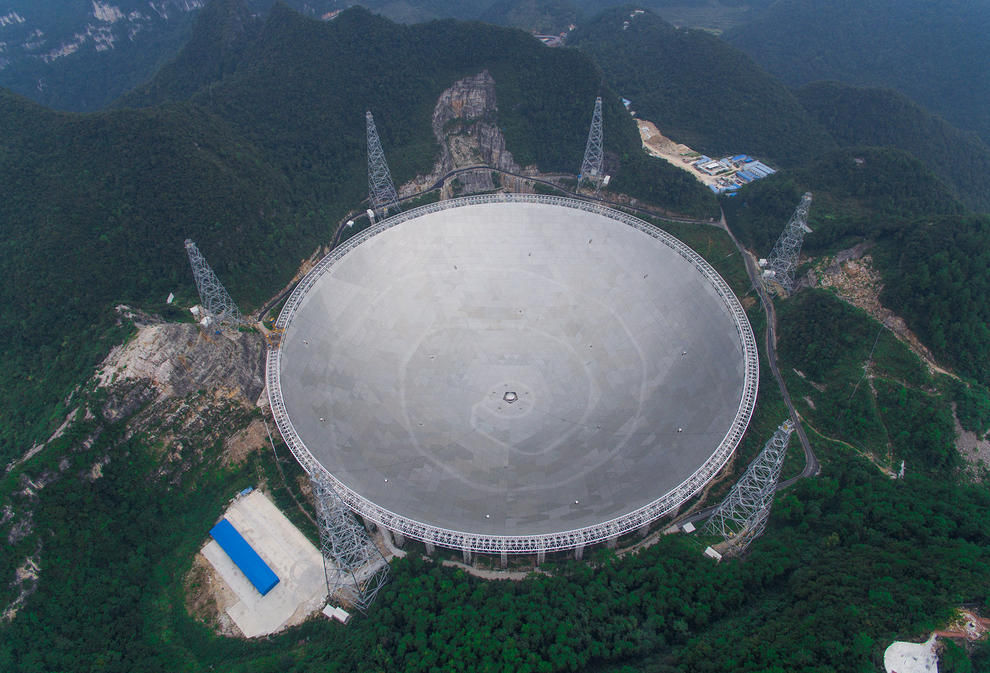
The FAST project was announced in 1994 and began construction in March 2011 at a cost of US $ 180 million.The last reflector was completed on July 3.(Photo: Xinhua.)
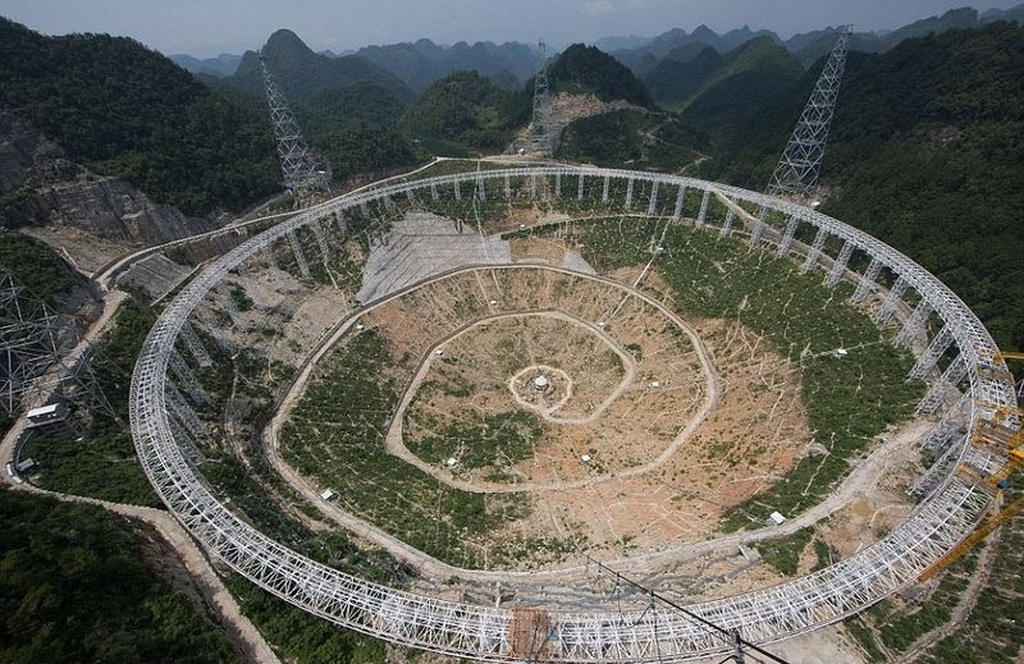
The 500 m aperture spherical telescope (FAST) of China was built in Pingtang District, Guizhou Province.The area is sparsely populated and has a natural "basin" and is unaffected by telephone and radar waves.(Photo: Xinhua.)
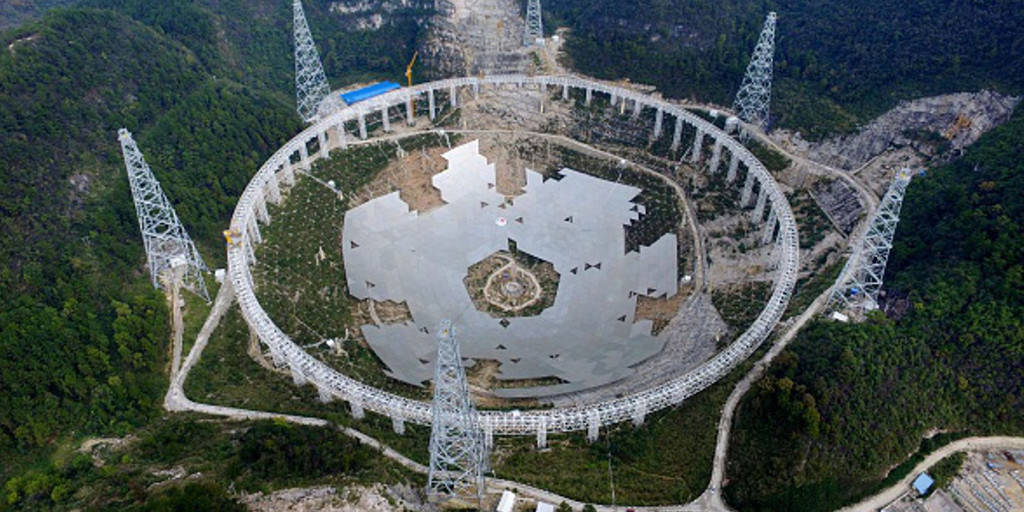
FAST's giant disk surface has a diameter of 500 m, including 4,450 reflectors equivalent to 30 football fields completed after 5 years.In 2009, 9,110 residents around the area were relocated to ensure a spacious space for FAST to operate.(Photo: Imaginechina.)
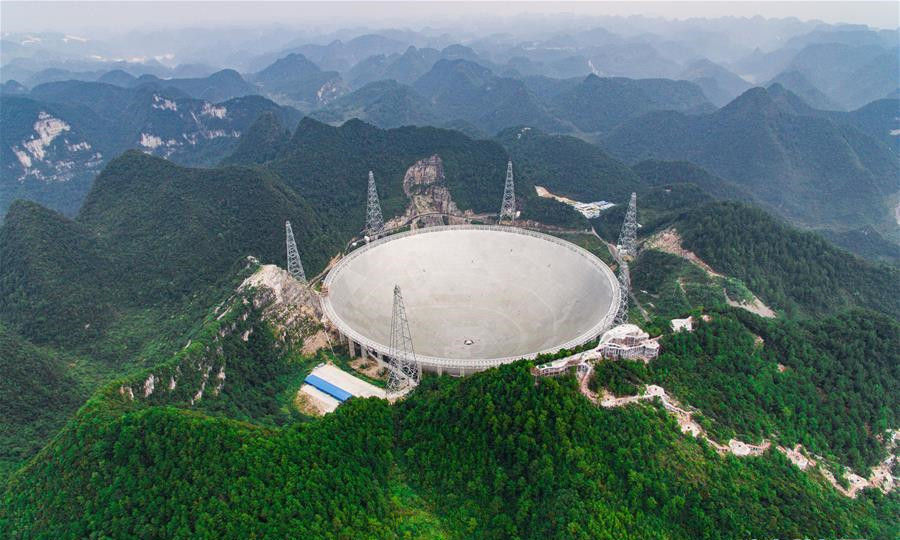
The mission of the FAST telescope is to search for alien life.With high sensitivity, FAST can detect very weak radio signals.The device was also used to further investigate the Milky Way, the origin of the universe, fast-rotating neutron stars with high magnetic fields, emitting electromagnetic radiation from the field.(Photo: Xinhua.)
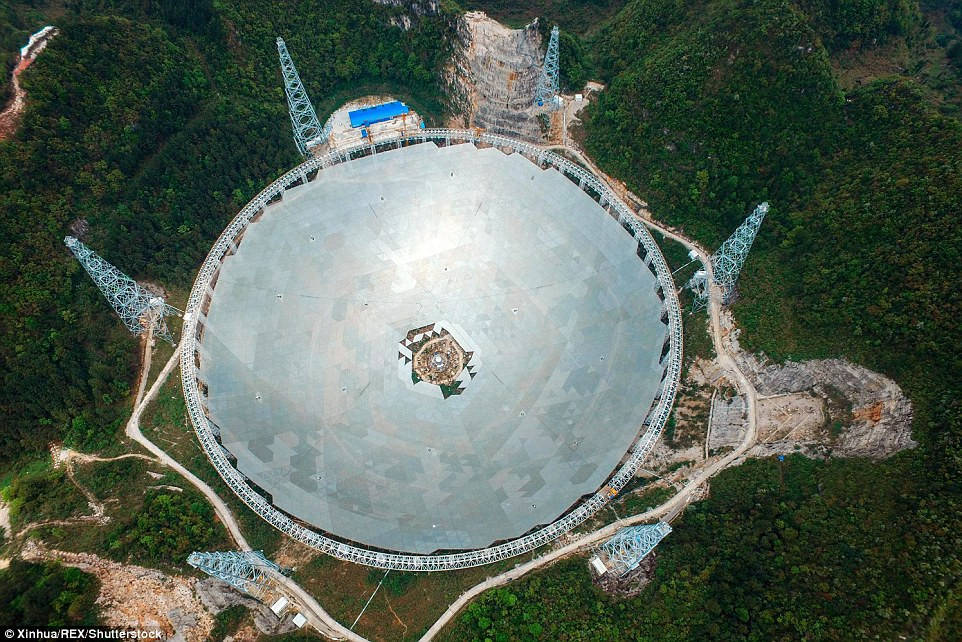
FAST needs quiet space within a 10 km radius to operate.So, within a radius of 4.8 km around the telescope, there are no residents.All hunting, logging, reclamation and construction activities in the area are strictly prohibited from September 25.(Photo: Xinhua.)
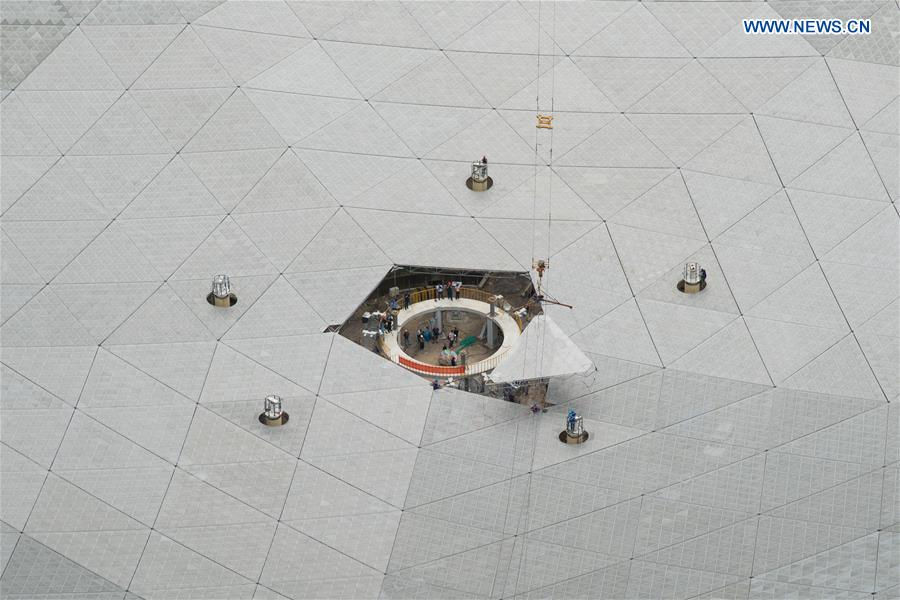
After going into operation from the end of September, FAST will undergo a calibration process lasting 2 or 3 years.During that time, scientists will use it for initial research.(Photo: Xinhua.)
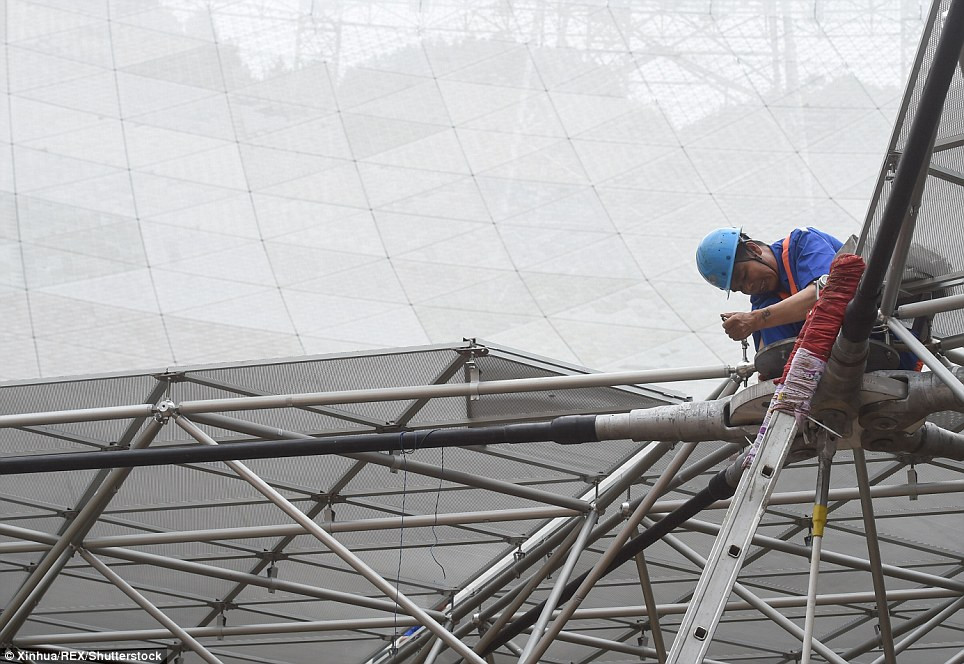
Of the seven signal receivers of FAST, five are produced in the country and the other two are Chinese cooperation products with organizations in Australia and the United States.(Photo: Xinhua.)
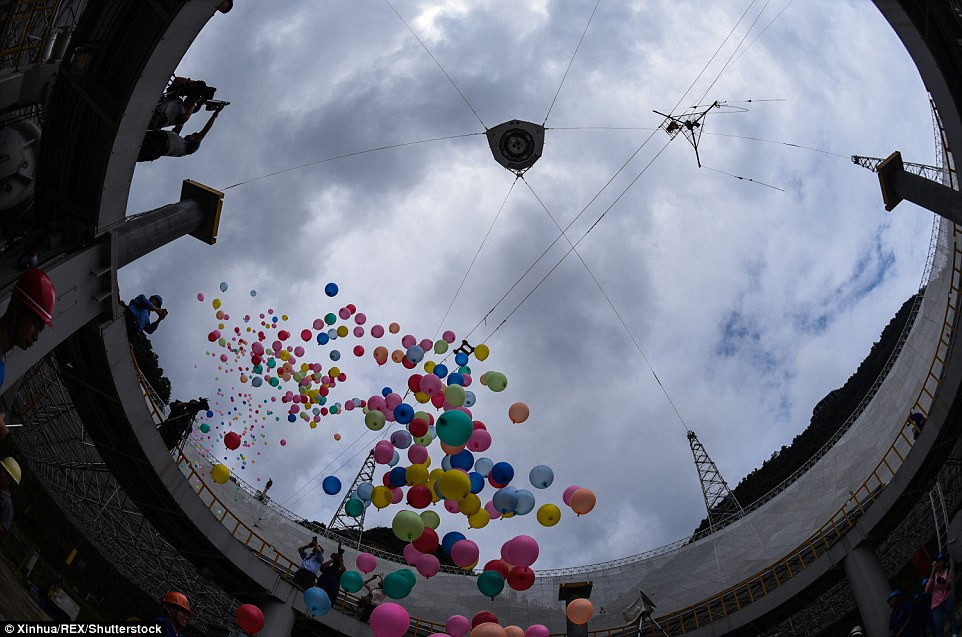
It took 17 years for Chinese scientists to find a position that was large and suitable to build FAST telescopes.(Photo: Xinhua.)
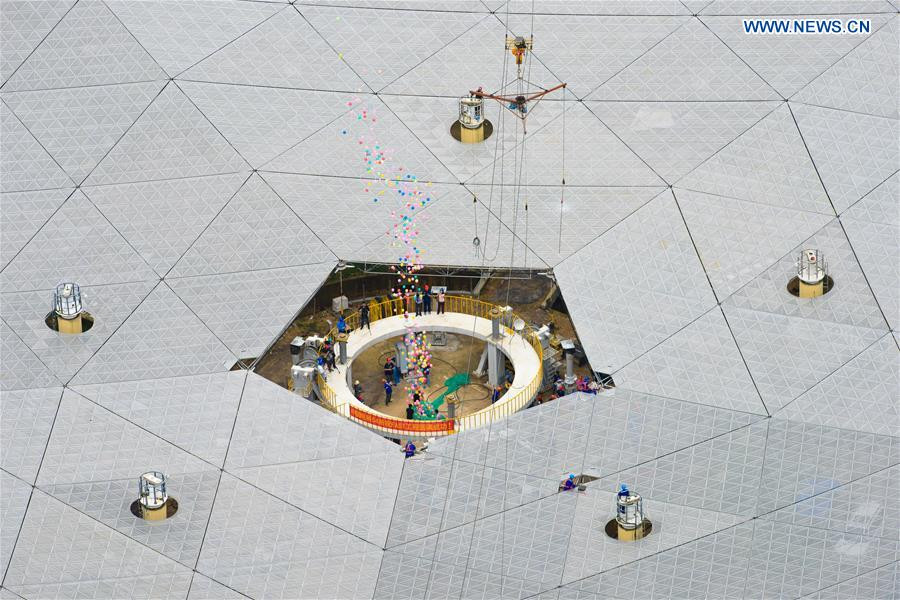
Inauguration, the FAST "throne" of the Arecibo Observatory in Puerto Rico, became the world's largest radio telescope.(Photo: Xinhua.)
Telescope construction process
You should read it
- ★ Mysterious cosmic signals of aliens challenge the scientific world
- ★ Travel space with splendid images of the universe
- ★ Aliens never answer us
- ★ NASA contemplates turning a moon crater into a giant, powerful telescope
- ★ A galaxy 500 million light-years away that emits radio waves with a 16-day cycle 'almost like squeezing lemons'